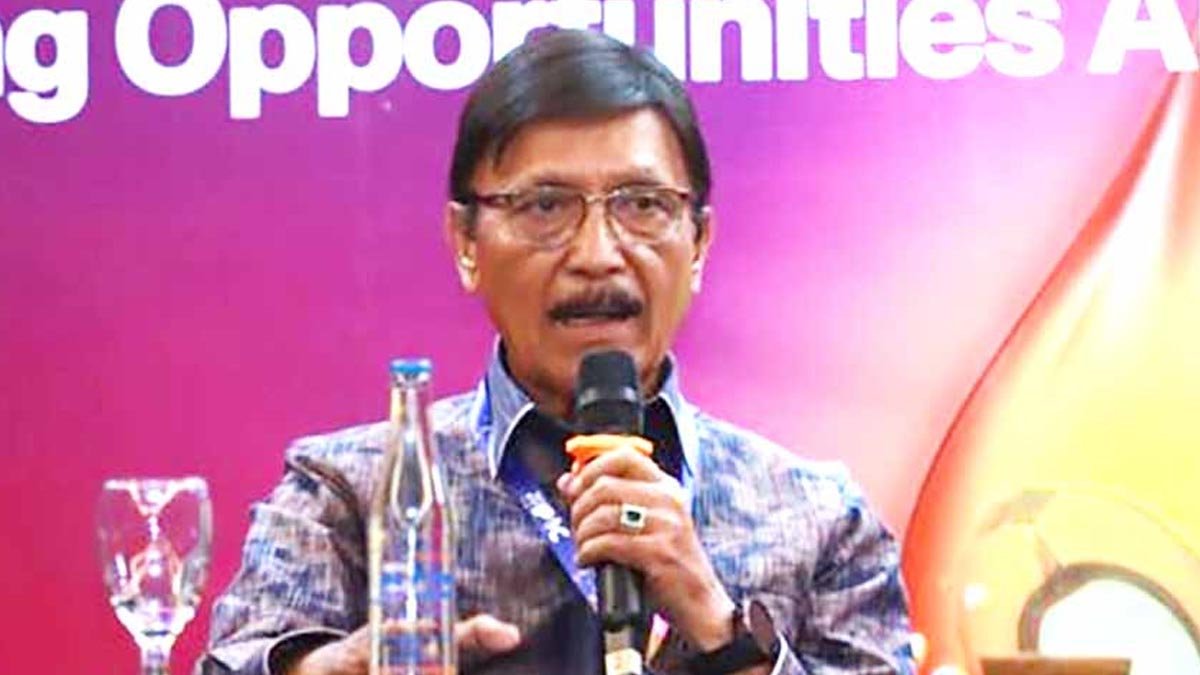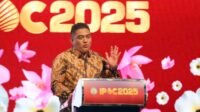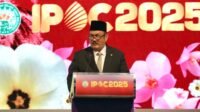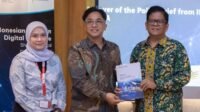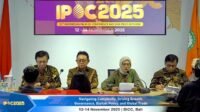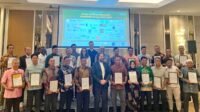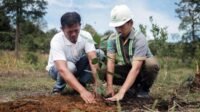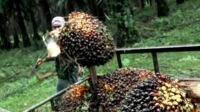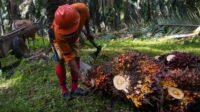PALMOILMAGAZINE, NUSA DUA, BALI — The first day of the 21st Indonesian Palm Oil Conference (IPOC) 2025 brought forward two key perspectives on the future of Indonesia’s palm oil industry. Director General of the Plantation Fund Management Agency (BPDP), Eddy Abdurrahman, and Head of the Oil Palm Studies Center at IPB University, Prof. Budi Mulyanto, both underscored that strengthening national energy security and ensuring legal certainty are fundamental pillars for the sector’s long-term resilience.
Eddy opened the session by highlighting the strategic role of biodiesel in maintaining palm oil price stability. He emphasized that Indonesia has become one of the world’s most advanced adopters of biofuel. “Biodiesel is not just an alternative energy—it is a pillar of palm oil price stabilization and a driver of Indonesia’s energy security,” he said to Palmoilmagazine.com.
He noted that biodiesel consumption surged from 119 thousand kiloliters in 2009 to more than 15.6 million kiloliters in 2025. This rapid growth follows the implementation of B10 to B35 blends and preparations for the national B40 mandate, which absorb a substantial share of domestic CPO.
Also Read:
According to Eddy, the biodiesel program has helped maintain fresh fruit bunch (FFB) prices within the range of IDR 1,344–IDR 2,932 per kg from 2014 to 2024, supporting the incomes of over 2.5 million smallholders. He reiterated that stable prices remain the backbone of farmer welfare.
Biodiesel has also had a major impact on energy security. In 2014, Indonesia imported 86% of its diesel requirements. By 2024, the figure dropped to around 37%. Foreign exchange savings climbed from IDR 12 trillion in 2017 to a projected IDR 147 trillion in 2025.
Eddy added that the sector has become a significant job creator—growing from 323,000 workers in 2017 to nearly two million in 2025. He called biodiesel a major economic engine.
However, he also acknowledged ongoing challenges, including technical readiness, logistical constraints in eastern Indonesia, and fiscal pressure when CPO prices exceed fossil diesel. He stressed the need for flexible levies, diversified feedstocks, and reinforced ISPO and RSPO certification.
Also Read:
He closed by noting the role of biodiesel in global diplomacy. “The biodiesel program proves that green energy and smallholder prosperity can advance together. BPDP remains committed to safeguarding this program for Indonesia’s energy future,” he said.
Following Eddy’s presentation, Prof. Budi Mulyanto delivered his perspective on legal certainty in the palm oil sector. He emphasized that palm oil has evolved beyond an agricultural commodity into a strategic instrument of economic diplomacy. “Palm oil today is not just an agri-commodity—it is a strategic pillar of Indonesia’s economic diplomacy,” he stated.
Budi highlighted that the sector manages 16.8 million hectares and generates USD 30–40 billion in annual export value. More than 16.5 million workers depend on the industry, with smallholders managing 42% of the total plantation area.
He stressed that smallholders’ legal status must be clarified, as many community-owned lands still face overlapping classifications. “Legal certainty must begin with justice for small farmers,” he said.
Budi identified regulatory fragmentation as a major source of uncertainty. Over 30 ministries and agencies currently hold authority over the sector, resulting in overlapping policies and inconsistent data.
This fragmented system disrupts investment certainty and hinders sustainability targets. “The absence of a single governing authority leads to overlapping mandates, unsynchronized data, unachieved sustainability goals, and an unstable investment climate,” he said.
He argued that reforms must return to the spirit of Article 33 of the Constitution—ensuring that the nation’s natural resources are managed for the greatest benefit of the people. The formation of a palm oil governance task force, he noted, is only a first step.
According to Budi, structural reform is needed to unify law, policy, and economic diplomacy. He outlined five pillars of legal certainty and investment: legal clarity, policy stability, sustainable governance, social justice, and strengthened downstream development.
He emphasized the balance between justice and stability, noting that investment thrives only when both are present. “When the law provides justice and policies ensure stability, investment builds prosperity—and that is where Indonesia’s economic sovereignty stands,” he said.
Budi described legal reform as a pathway to clarity, ensuring fiscal consistency, institutional transparency, and long-term investment sustainability—what he called a “structural rearrangement toward clarity.”
As a concrete recommendation, Budi proposed the establishment of a National Palm Oil Agency. He envisioned this institution as the anchor of Indonesia’s palm oil diplomacy. “One Map, One Data, One Authority,” he concluded.
Don’t miss out! Stay up to date with the latest IPOC 2025 news at Palmoilmagazine.com. (P3)

